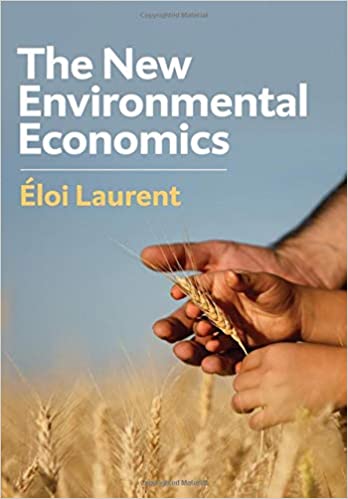종종 경제학은 인간을 자연으로부터, 경제를 ‘인간을 포함하는’ 생물권으로부터의, 그리고 지속가능성을 공정으로부터 분리한다. 경제학자들이 환경 문제에 관여할 때, 그들은 이를 전형적으로 효율성의 과학으로 축소시키는데, 이는 일반적으로 분배에 대한 분석과 정의라는 또 다른 이슈를 남겨둔다.
이 명쾌한 책의 목표는 생물권의 한계 내에서 인간의 웰빙(well-being)을 우선시하는 프레임 워크를 제공하고 단지 효율성이 아닌 공정에 비추어 경제 분석 및 정책을 재고하는 것입니다. 선도적인 경제학자 엘로이 로랑은 광범위한 주제를 다루면서 지속 가능성과 정의의 문제를 체계적으로 연결한다. 이는 생물 다양성과 생태계, 에너지와 기후 변화, 환경 건강과 환경 정의에서 GDP와 성장을 넘어 웰빙과 지속 가능성의 새로운 지표, 사회 생태학적 전환과 지속 가능한 도시 시스템까지 이르고 있다.
이 책은 역사, 정치 과학 및 철학 등을 경제학과 나란히 함께 하여 다양한 분야의 아이디어와 도구를 독자들에게 제공하여, 21세기의 어려운 과제를 이해하고 궁극적으로 해결하기 위해 이러한 통찰력을 적용하도록 권유한다. 이는 환경 경제와 정책, 지속 가능한 개발을 위한 소중한 리소스가 될 것이다.
Too often, economics disassociates humans from nature, the economy from the biosphere that contains it, and sustainability from fairness. When economists do engage with environmental issues, they typically reduce their analysis to a science of efficiency that leaves aside issues of distributional analysis and justice.
The aim of this lucid textbook is to provide a framework that prioritizes human well-being within the limits of the biosphere, and to rethink economic analysis and policy in the light of not just efficiency but equity. Leading economist Éloi Laurent systematically ties together sustainability and justice issues in covering a wide range of topics, from biodiversity and ecosystems, energy and climate change, environmental health and environmental justice, to new indicators of well-being and sustainability beyond GDP and growth, social-ecological transition, and sustainable urban systems.
This book equips readers with ideas and tools from various disciplines alongside economics, such as history, political science, and philosophy, and invites them to apply those insights in order to understand and eventually tackle pressing twenty-first-century challenges. It will be an invaluable resource for students of environmental economics and policy, and sustainable development.





















